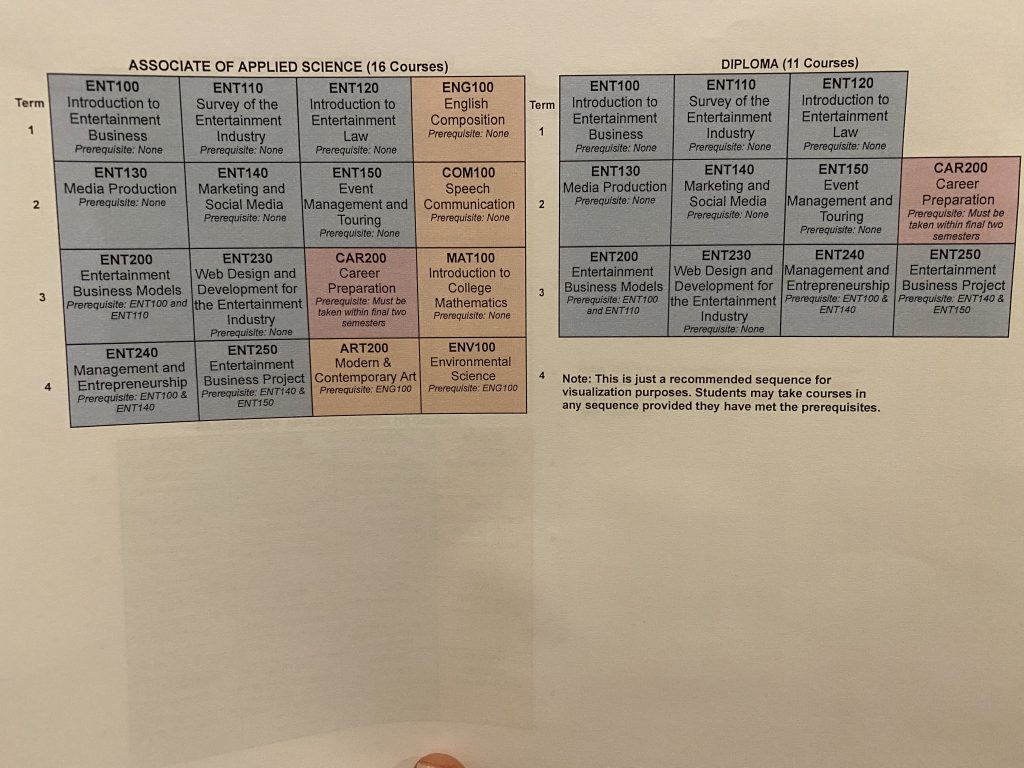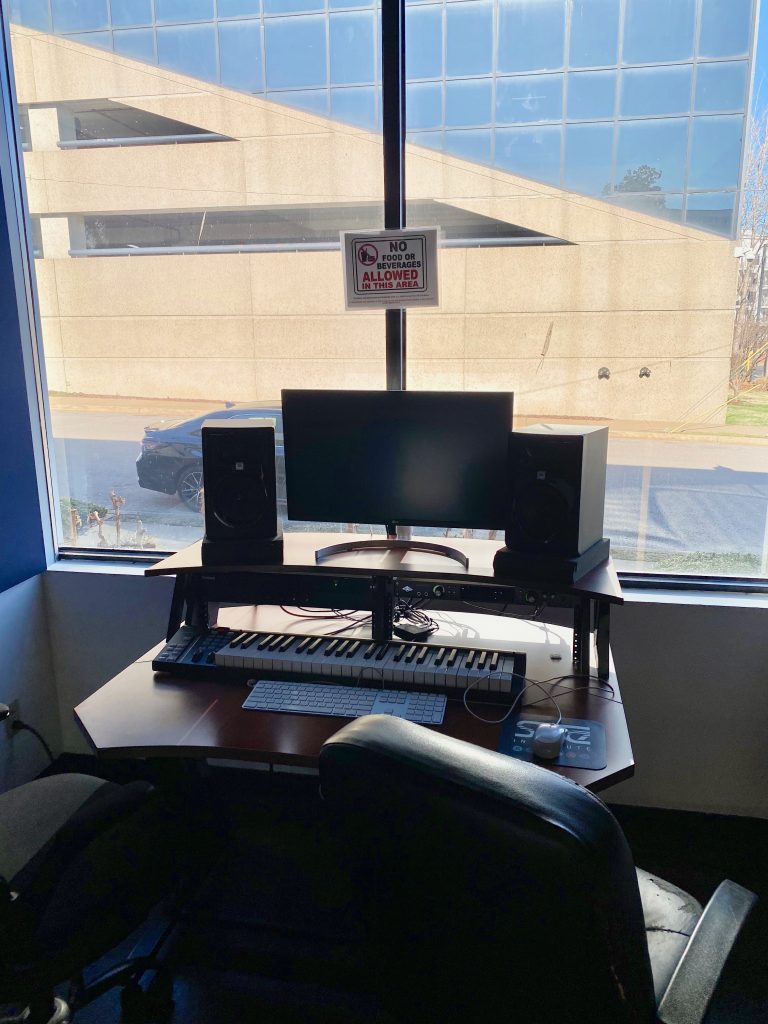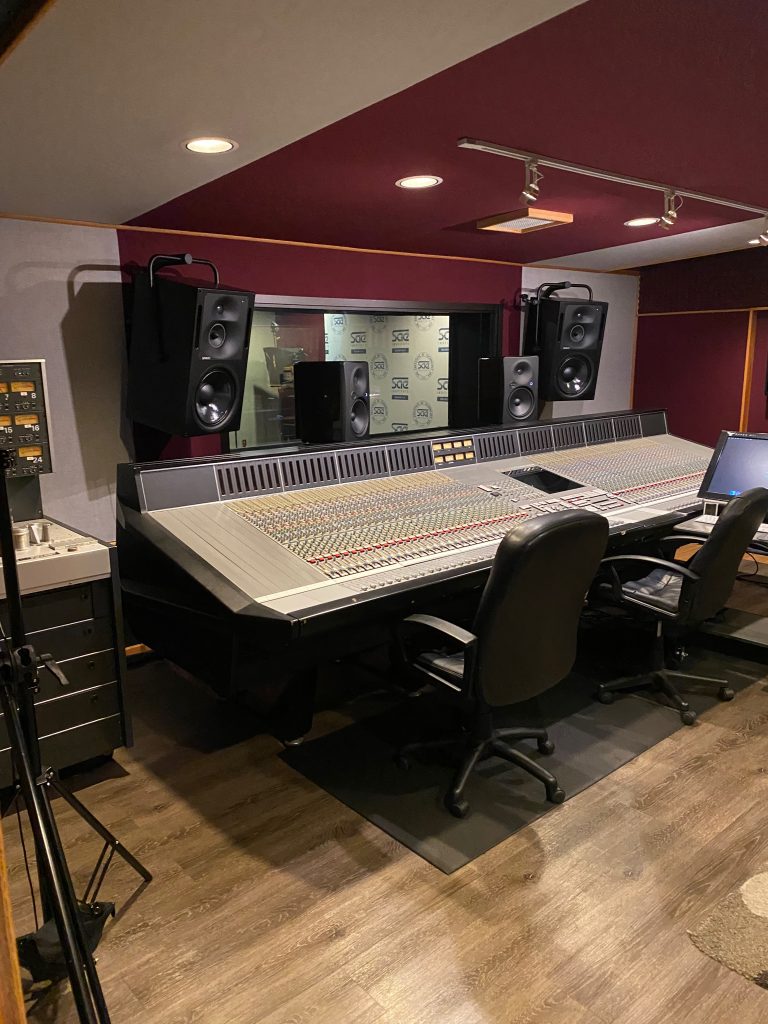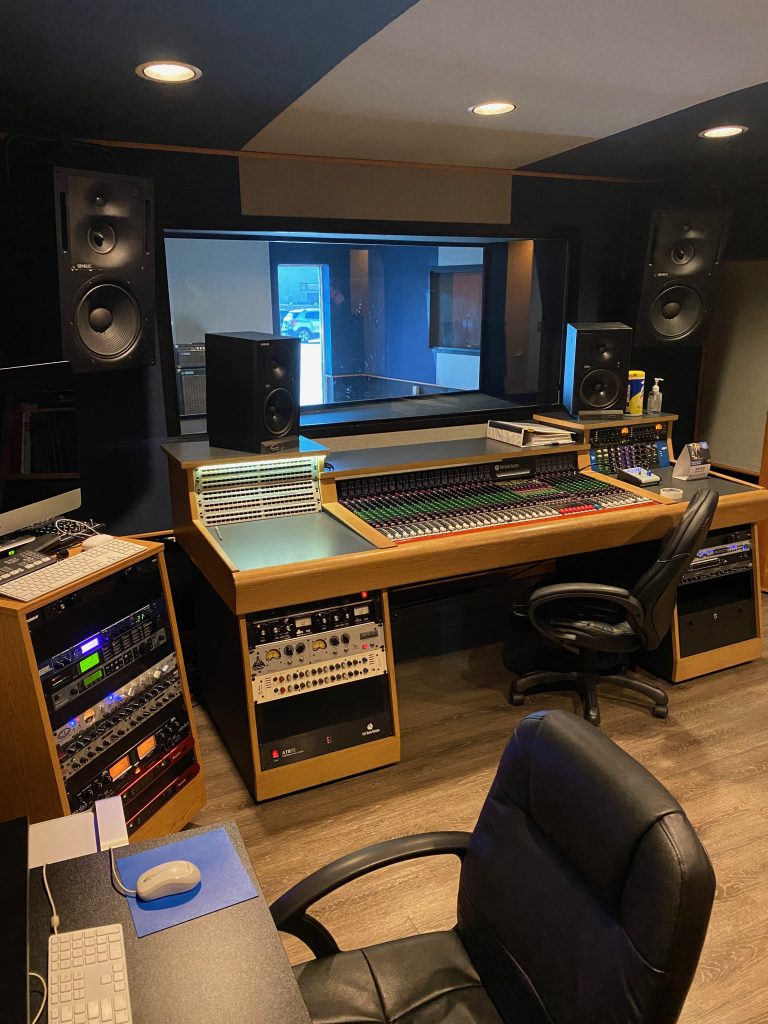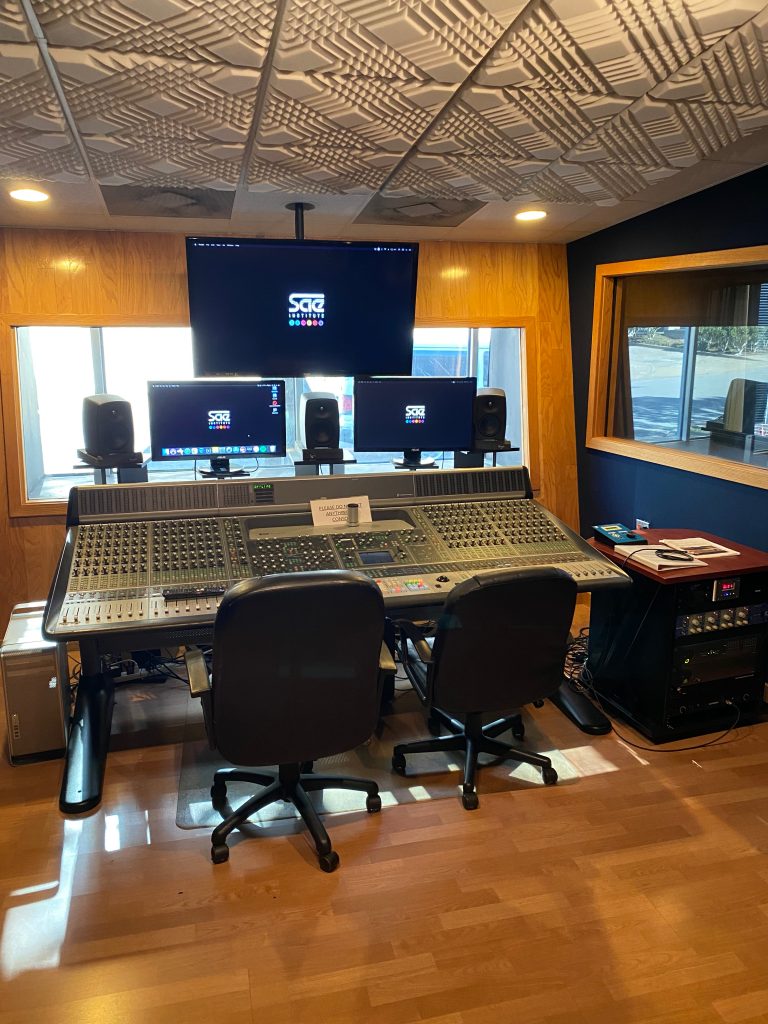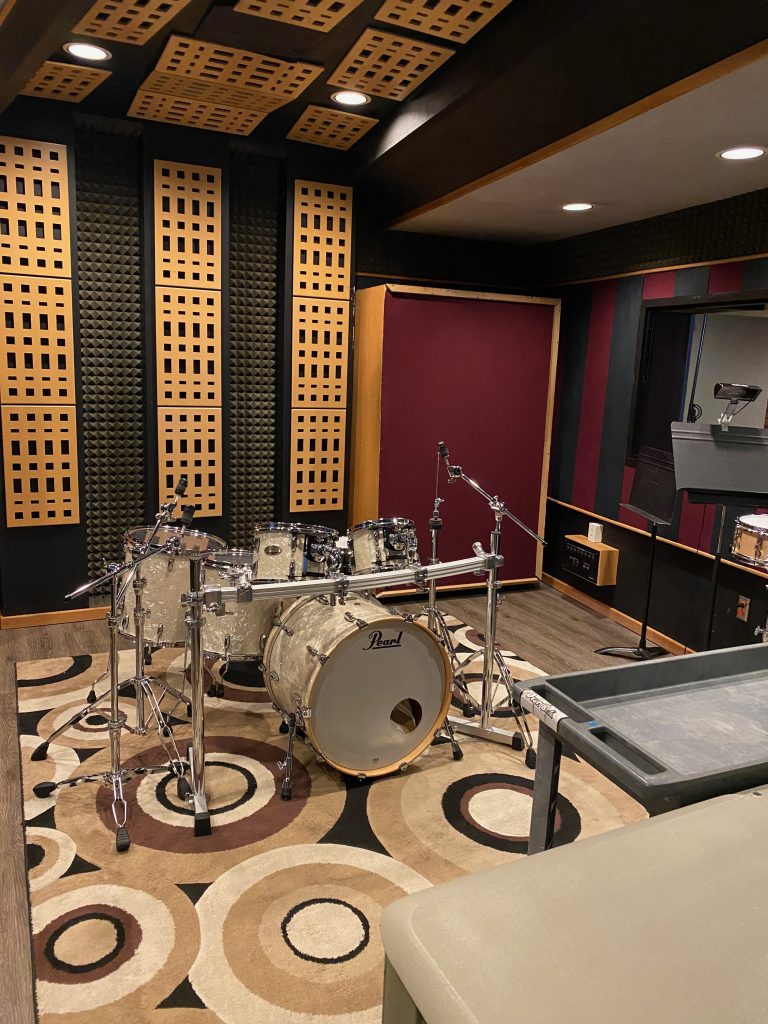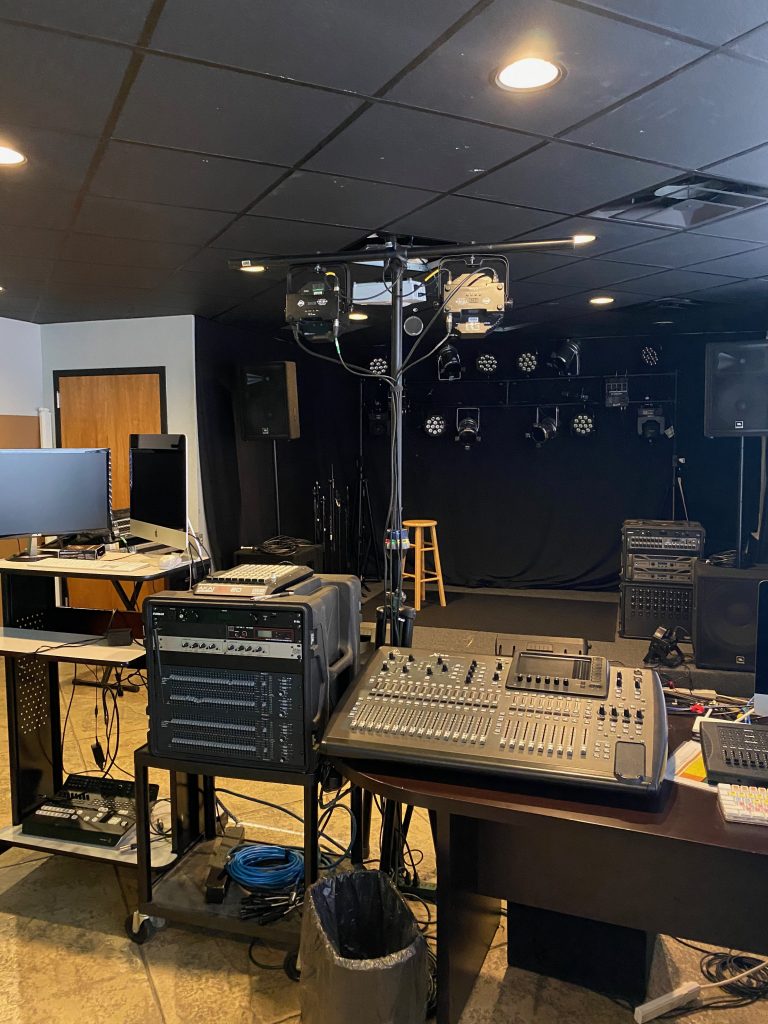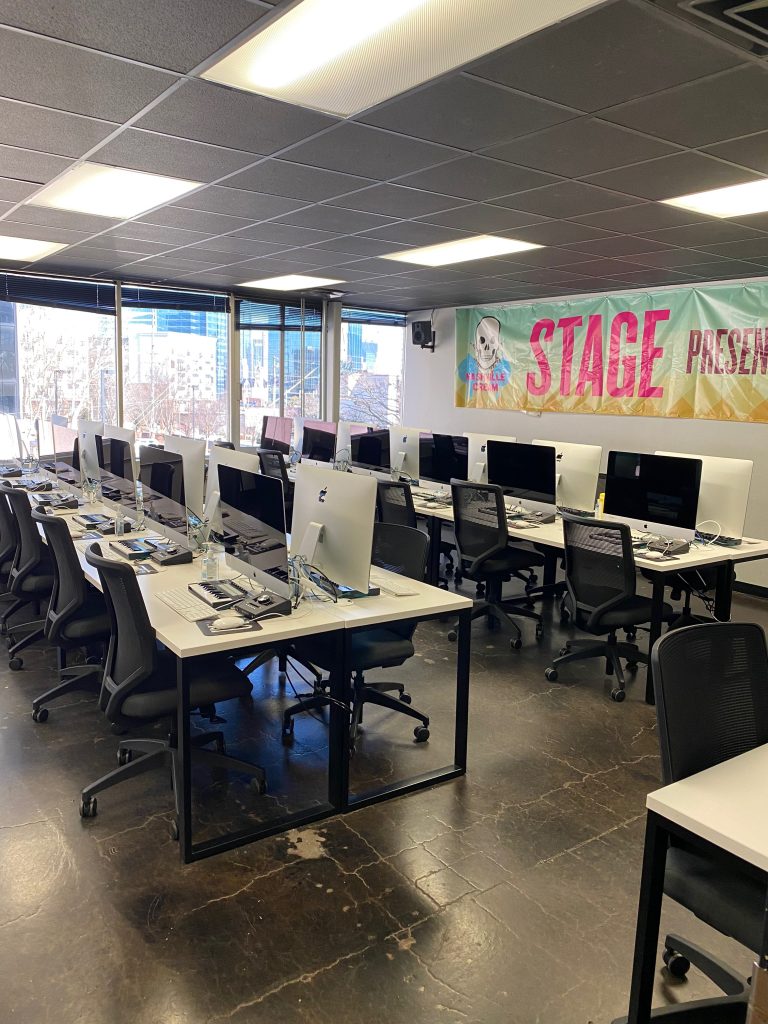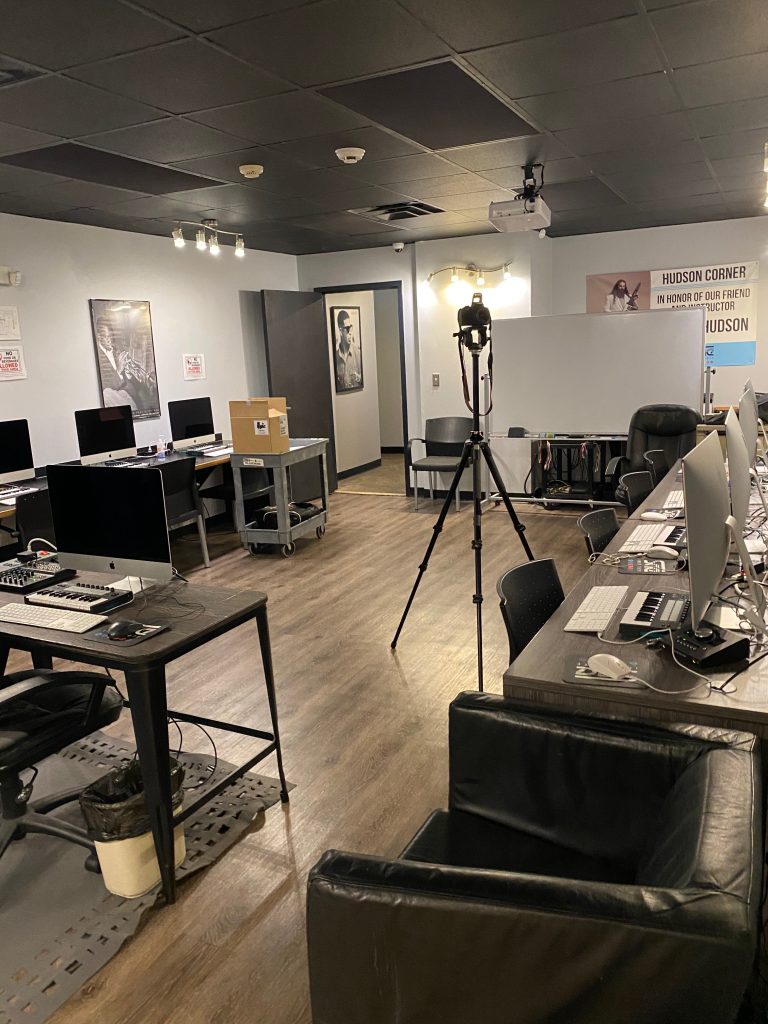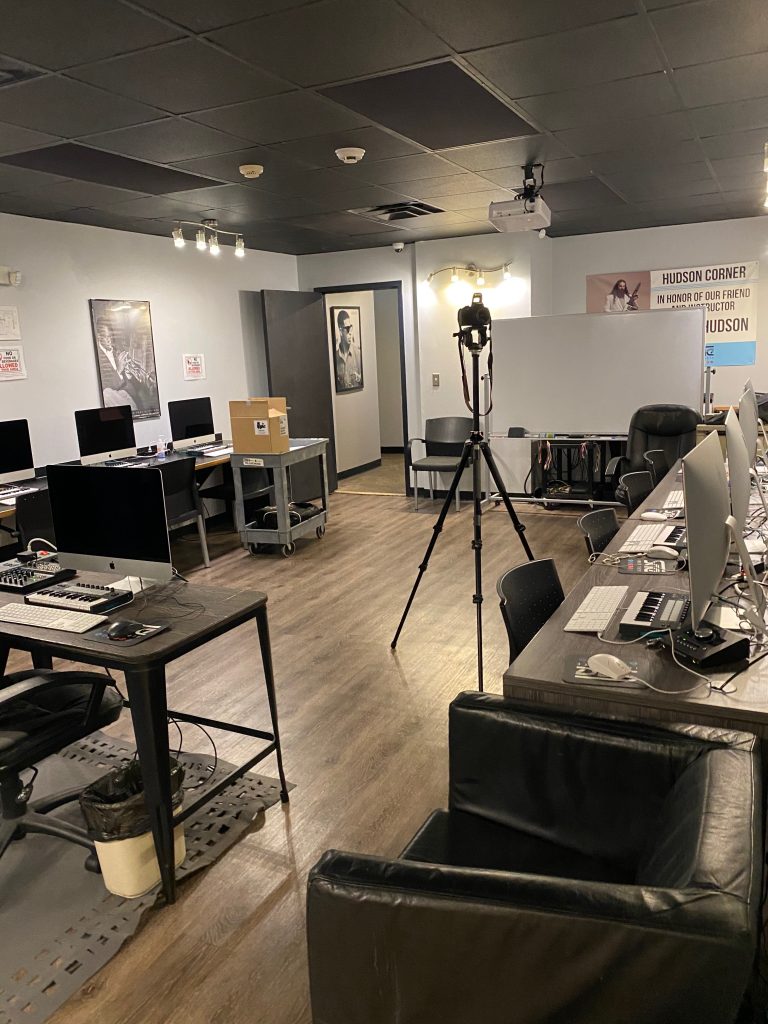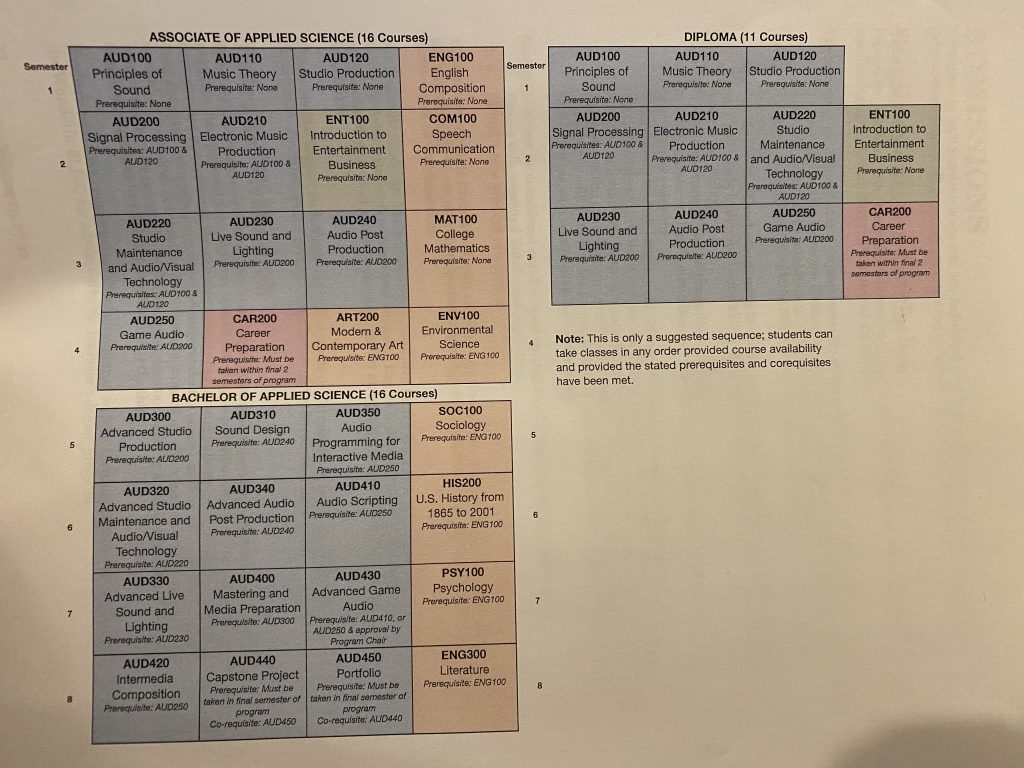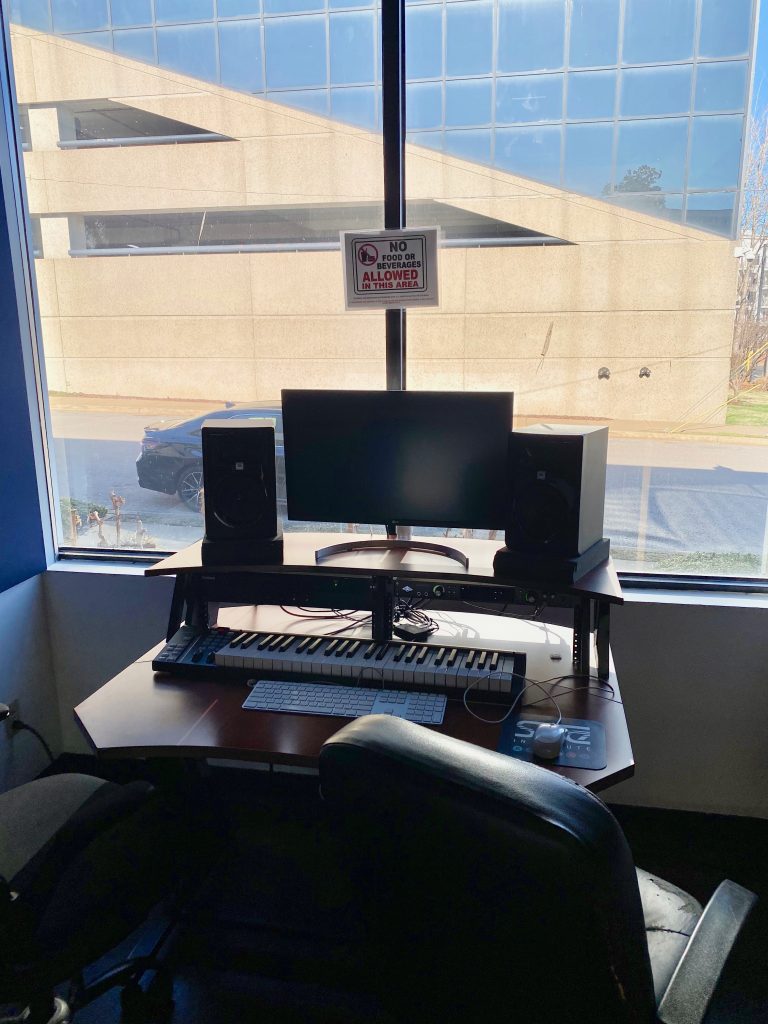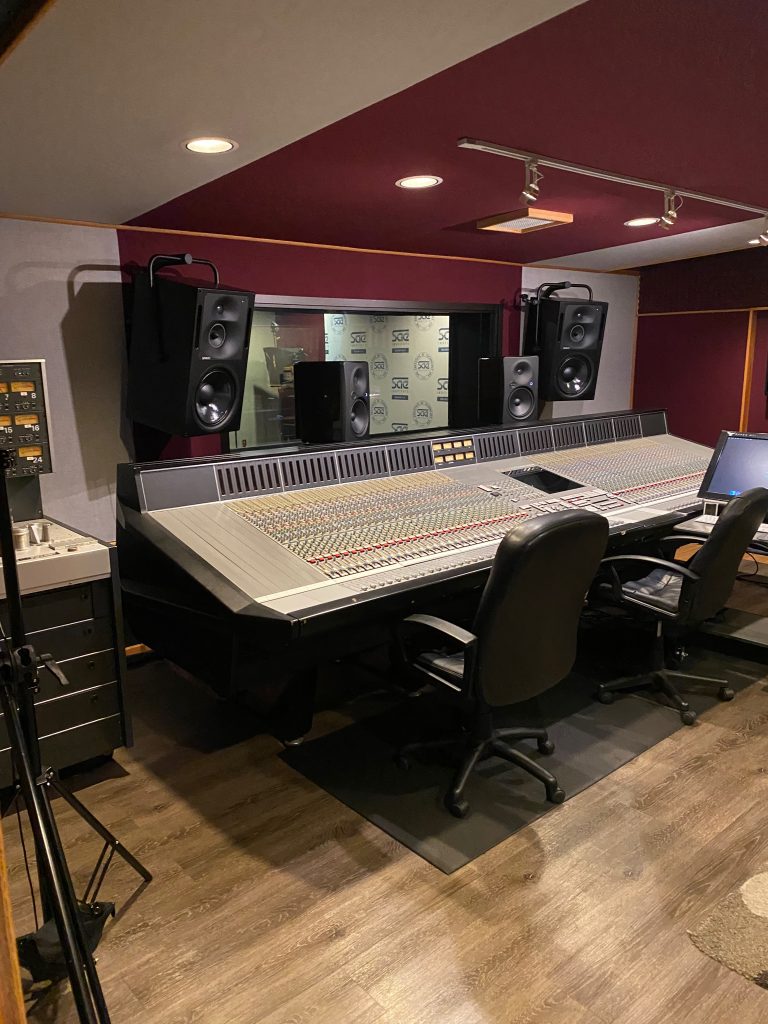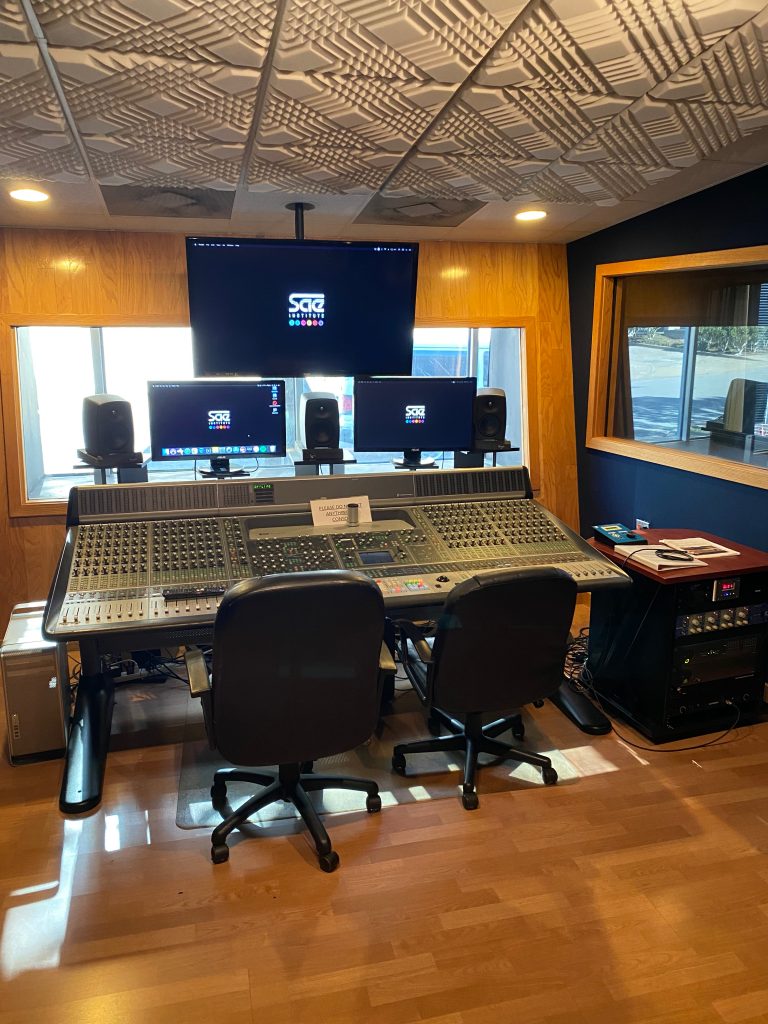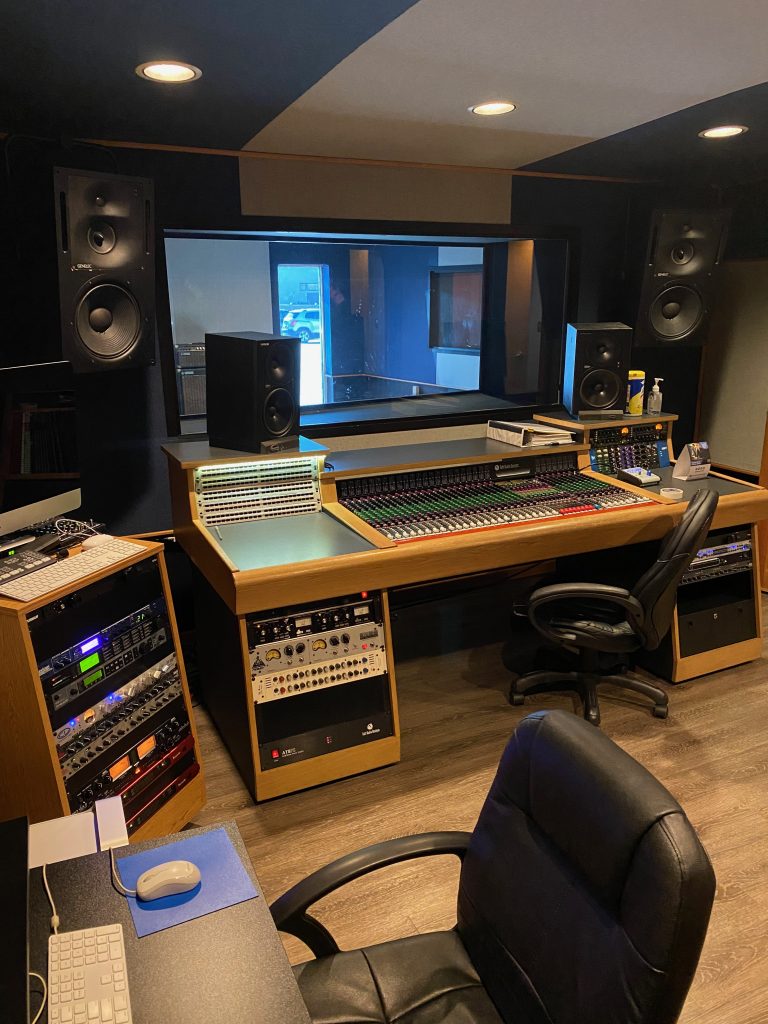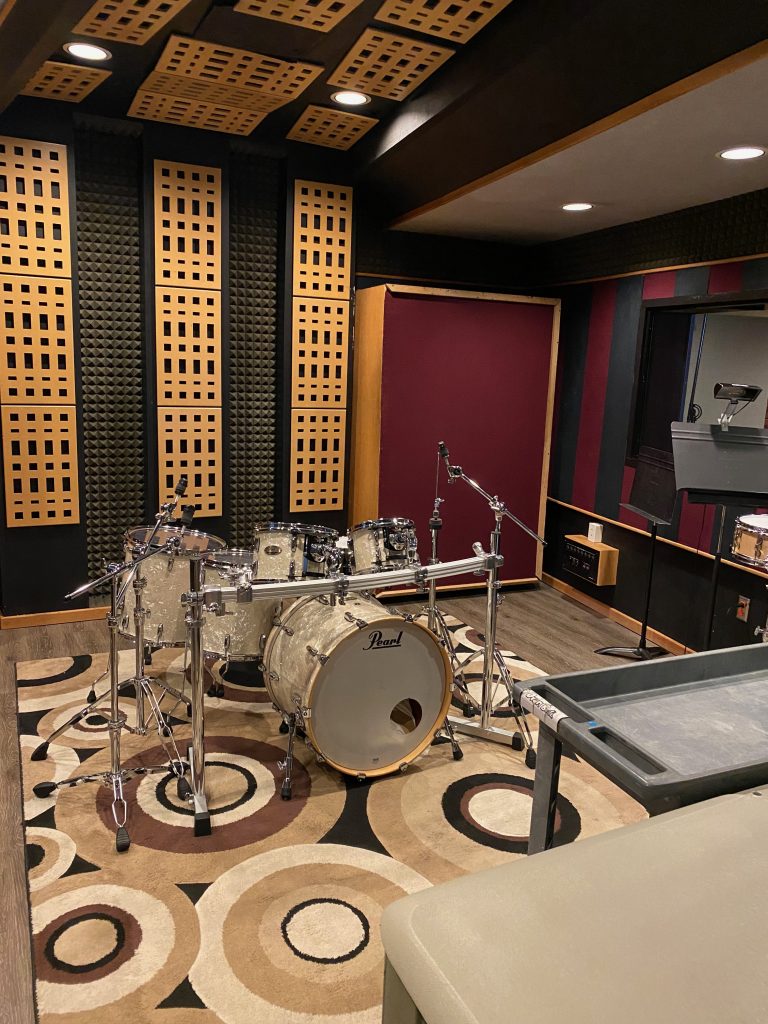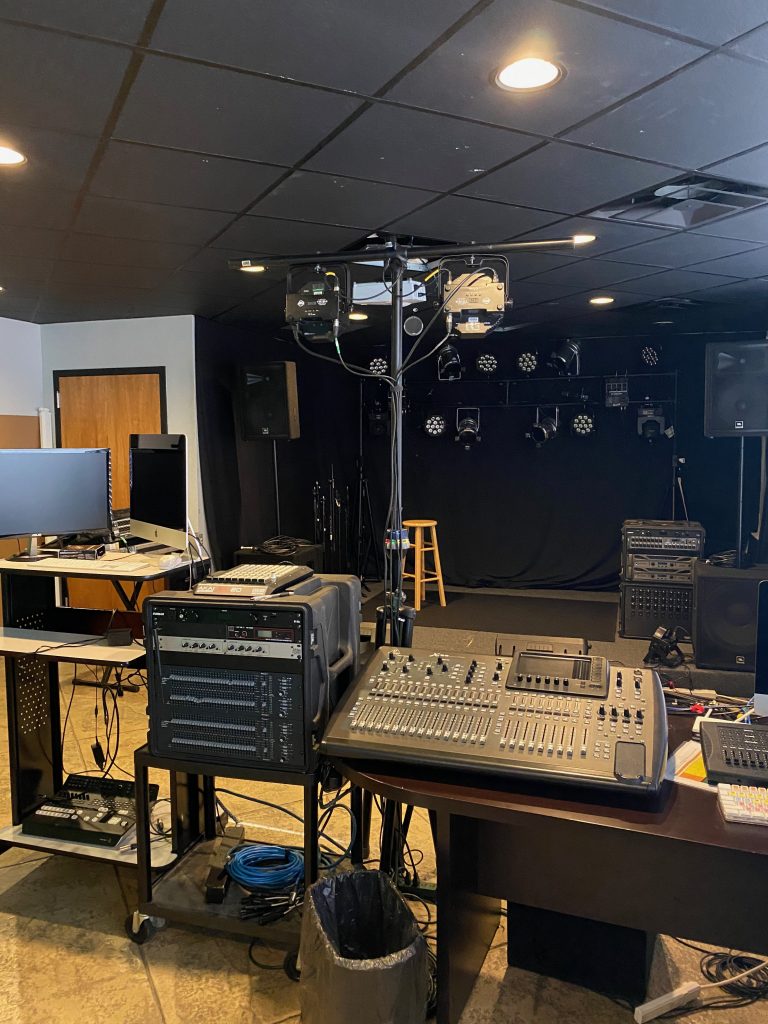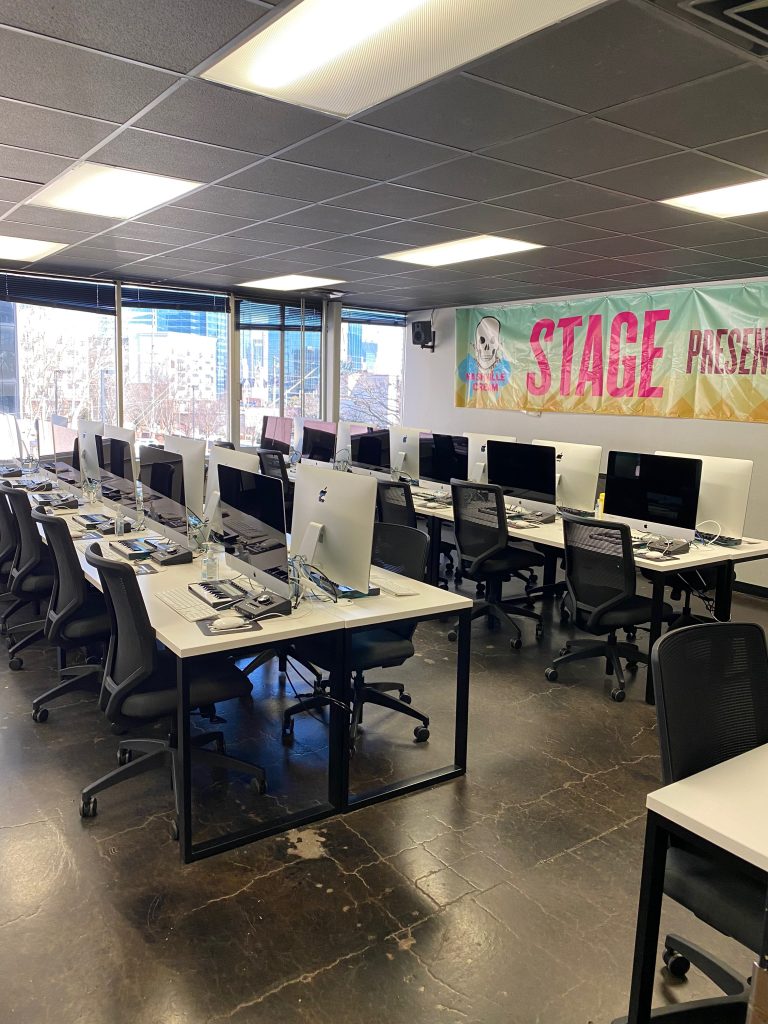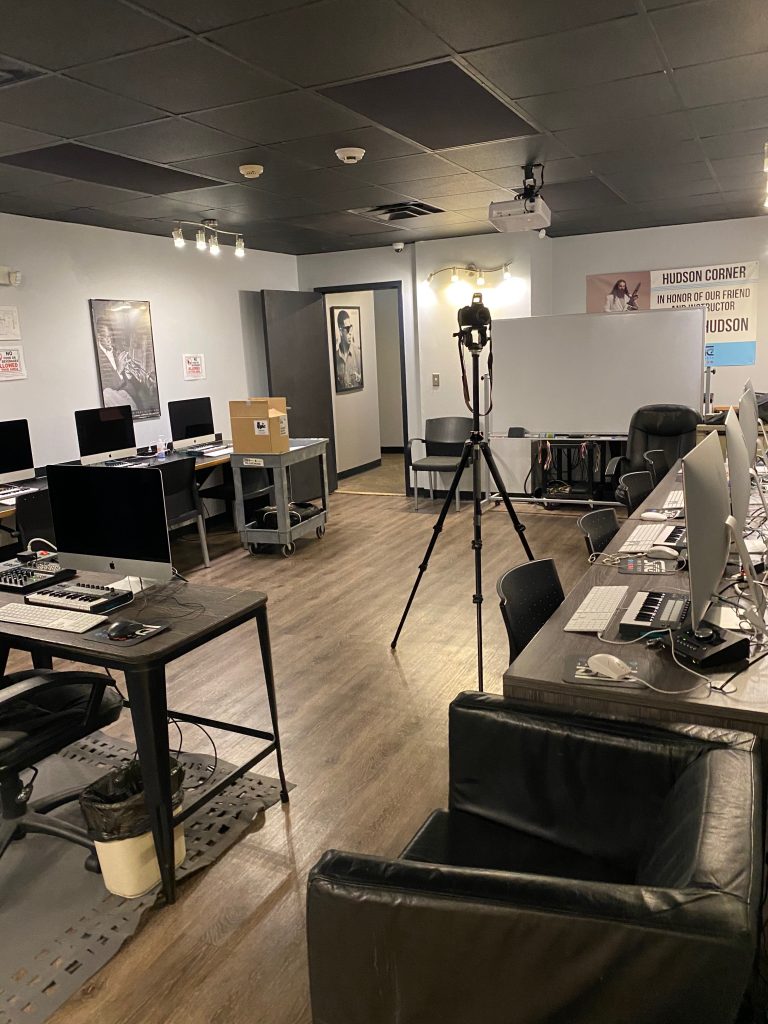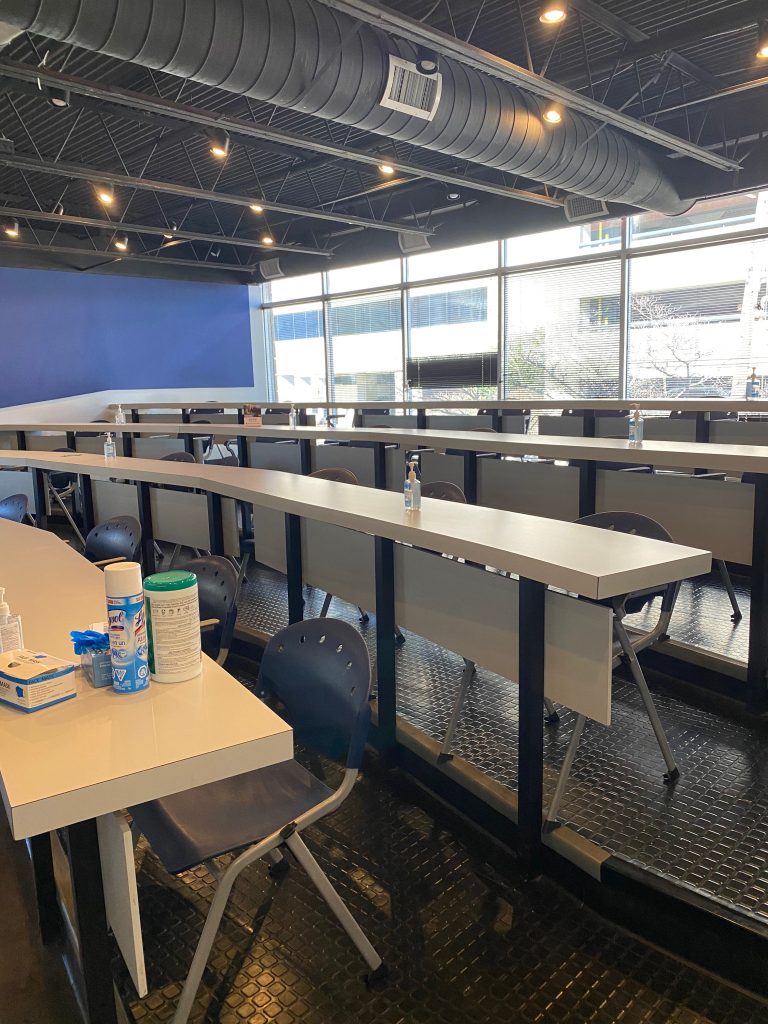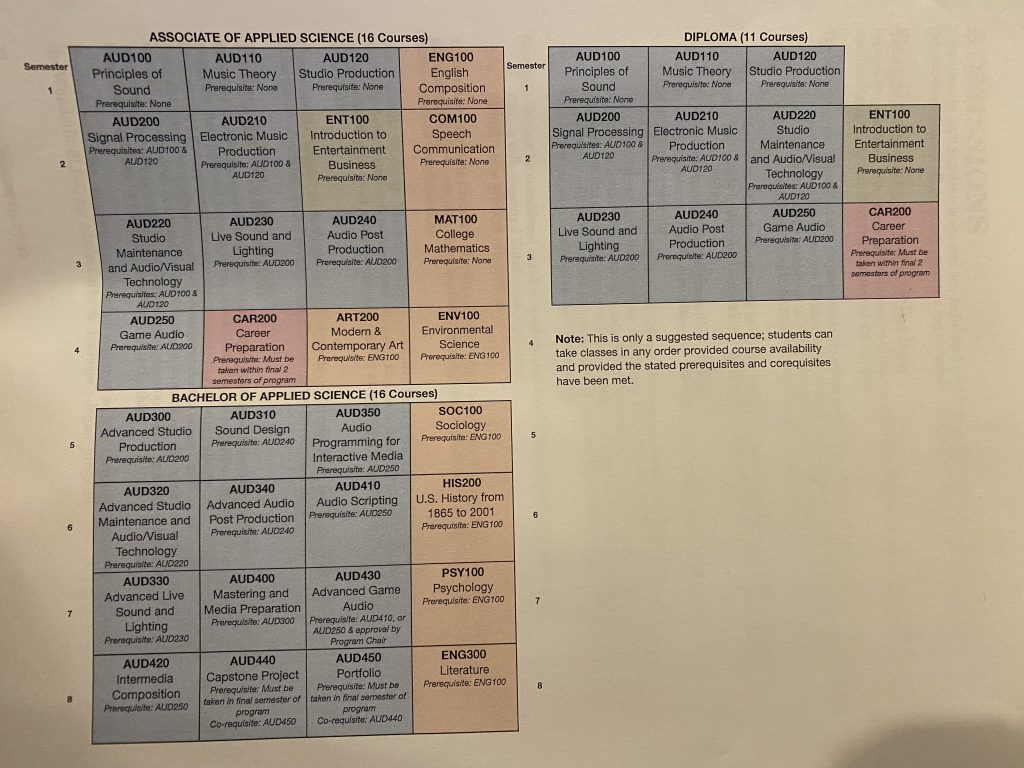Zu Besuch bei der SAE Nashville (D)
In einer Stadt, in der sich alles um Musik dreht ist es natürlich besonders spannend eine Ausbildungsstätte wie die SAE zu besuchen. Neben Audio Engineering kann man hier auch Entertainment Business studieren.
Der Campus befindet sich im Herzen von Music Row, einem Stadtteil in dem neben Studios auch viele Musikverlage und Labels, wie etwa Sony oder Universal stationiert sind. Direkt neben der SAE befinden sich das BMI Gebäude (vergleichbar mit AKM/GEMA), Sound Stage Studios und der Sitz der Musicians Union, über die ich in einem früheren Post berichtet habe.
Nach dem Setup für die erste Session des Tages bin ich von meinem Praktikumsplatz, den OmniSound Studios, zur SAE gegangen, die nur zehn Minuten entfernt liegt. Dort wurde ich sehr herzlich von Campus Direktorin Shannon Meggert (links) empfangen und von ihr, sowie Technical Supervisor Chris Dilday (mitte) durch die Räumlichkeiten geführt.
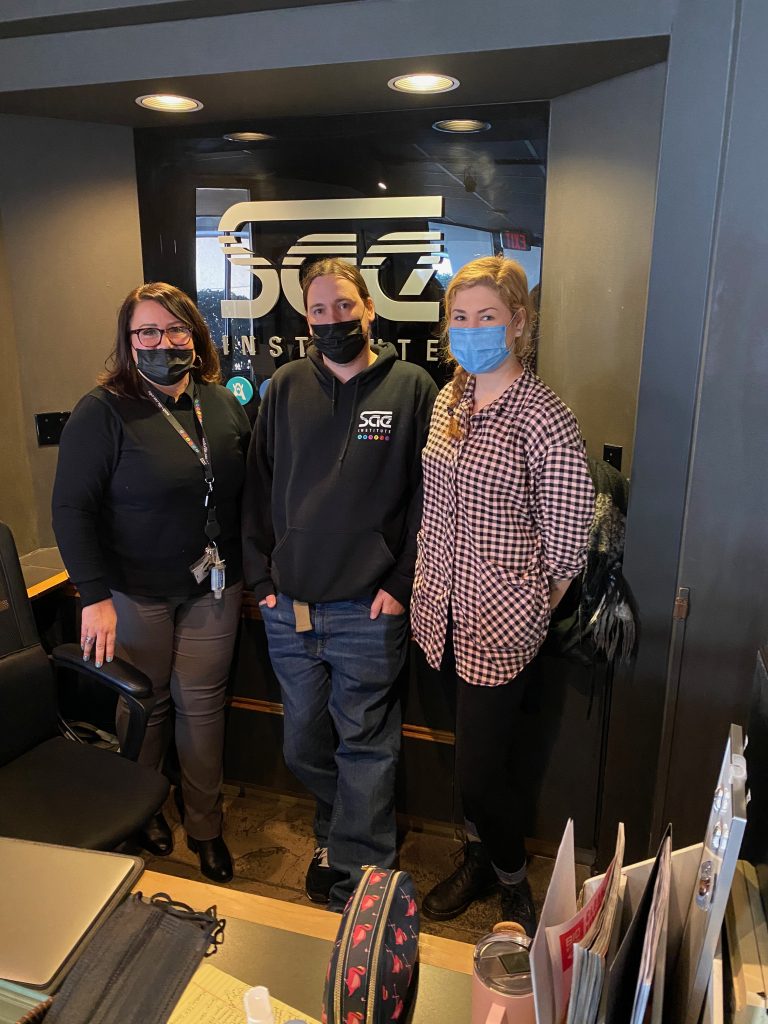
Das Gebäude hat zwei Stockwerke, wobei das Erdgeschoss hauptsächlich aus den Studios besteht. Dazu gehören drei Audiovisual-Suites (“AV-Suites”) mit jeweils einer kleinen ISO-Booth als Aufnahmeraum, Studio A mit einer SSL9000G Konsole (die laut Shannon früher Whitney Houston gehörte), Studio B mit einer Toft-Konsole und Studio C mit einem Icon-Controller und Surround System für Postproduction. Außerdem gibt es mehrer größere Aufnahmeräume, die auch kombiniert verwendet werden können und einen Raum mit kleiner Bühne, in dem Ton- und Licht-Setup für den Live-Bereich gelehrt werden.
Im zweiten Stock sind die Klassenräume, ein Aufenthaltsbereich und Büros beheimatet. Wie auch in der SAE New York sind in fast allen Klassenzimmern die Arbeitsplätze mit Apple Rechner, Apollo-Twin-Interface und kleinem Midi Keyboard bestückt. Trotz der gut ausgestatteten Räumlichkeiten bekommt jeder neue Student bei Kursbeginn ein iPad, eine Festplatte mit 1TB Speicherplatz und ein paar Shure SRH44 Kopfhörer.
Etwa 220 Audio Student*innen und 30 Entertainment Business Student*innen sind am Campus eingeschrieben. Der Entertainment Business Kurs hieß zuvor Music Business, wurde jedoch umbenannt. Der Hauptfokus liegt laut Ryan Griffin, dem Director of Education, noch immer auf der Musikindustrie, es sind jedoch auch andere Einflüsse zum Beispiel aus der Sportevent-Branche, im Lehrplan vorhanden.
Die Schließung des Campus in Emeryville hat zur Folge, dass die SAE Nashville die Zulassung für einen Filmkurs bekommen hat – wann dieser genau starten wird ist jedoch noch unklar.
Laut Shannon gibt es im Moment drei internationale Studenten, einen aus Marokko, einen aus Indien und einen aus Russland. Die Frauenquote beträgt, wie auch in New York, etwa 15 Prozent. SAE Institute USA bieten nationalen, aber auch internationalen Studierenden die Möglichkeit, um ein Stipendium anzusuchen.
Der Unterricht basiert auf einem Hybrid-System, das bedeutet, dass etwa die Hälfte der Unterrichte online und die andere Hälfte am Campus stattfindet. Die Klassen bestehen aus bis zu 27 Student*innen. Über 70 Prozent der Absolvent*innen finden einen Job in der Musikbranche – viele davon in der Live Industrie, die in der Gegend um Nashville sehr ausgeprägt ist und zu der die SAE viele Kontakte bietet. Die Dozenten in den unterschiedlichen Kursen sind aus der Industrie und können aus erster Hand vom Branchenalltag berichten.
Im Audio Engineering Bachelor wird ein großer Fokus auf interaktive Medien und die Integration von Audio gelegt. Nicht nur die kreative Seite der Branche, sondern besonders die technische wird bedient. “Tech Heavy Jobs” wie etwa Codierung in Zusammenhang mit künstlicher Intelligenz oder Audio Engineers für Video und Film- und Multimediaunternehmen sind sehr gefragt, weshalb die Ausbildung im Bachelor in diese Richtung geht.
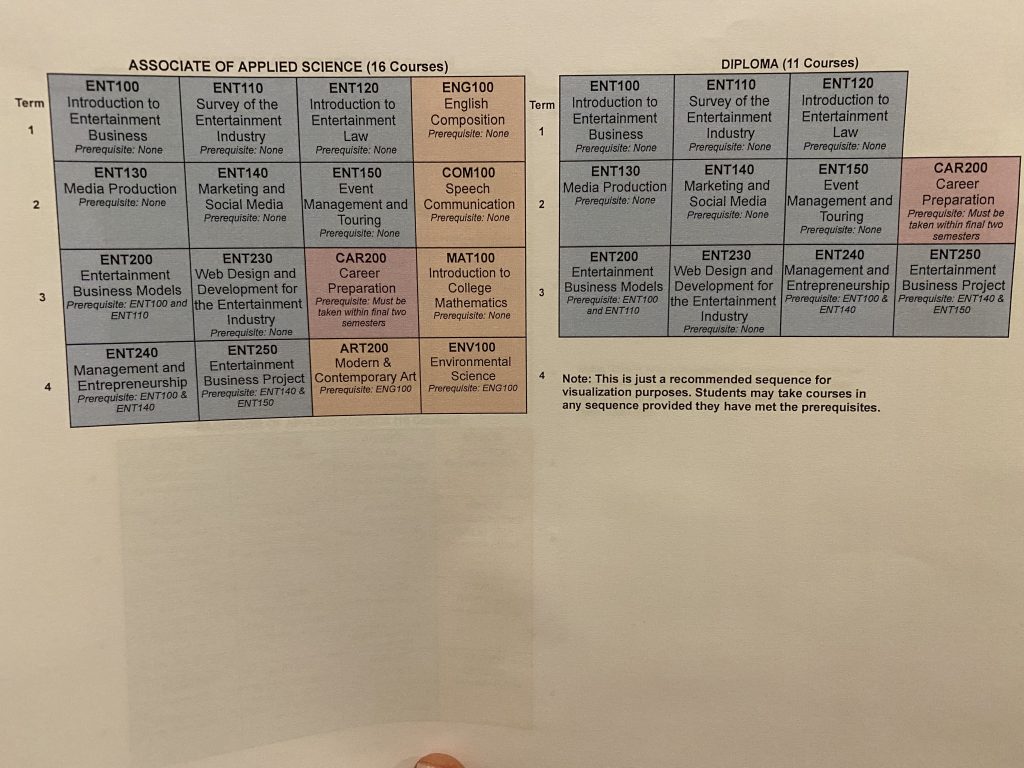
Visiting SAE Nashville (E)
In a city where everything revolves around music, it is of course particularly exciting to visit an audio engineering school. In addition to audio engineering, you can also study entertainment business here.
The campus is located in the heart of Music Row, a district in which, in addition to studios, many music publishers and labels such as Sony and Universal are stationed. Right next to the SAE the BMI building (comparable to AKM / GEMA), Sound Stage Studios and the headquarters of the Musicians Union, which I reported about in an earlier post, can be found.
After setting up for the first session of the day at my internship at OmniSound Studios, I walked over to SAE, which is only ten minutes away by foot. I was warmly welcomed by Campus Director Shannon Meggert (left) and shown around the premises by her and Technical Supervisor Chris Dilday (center).
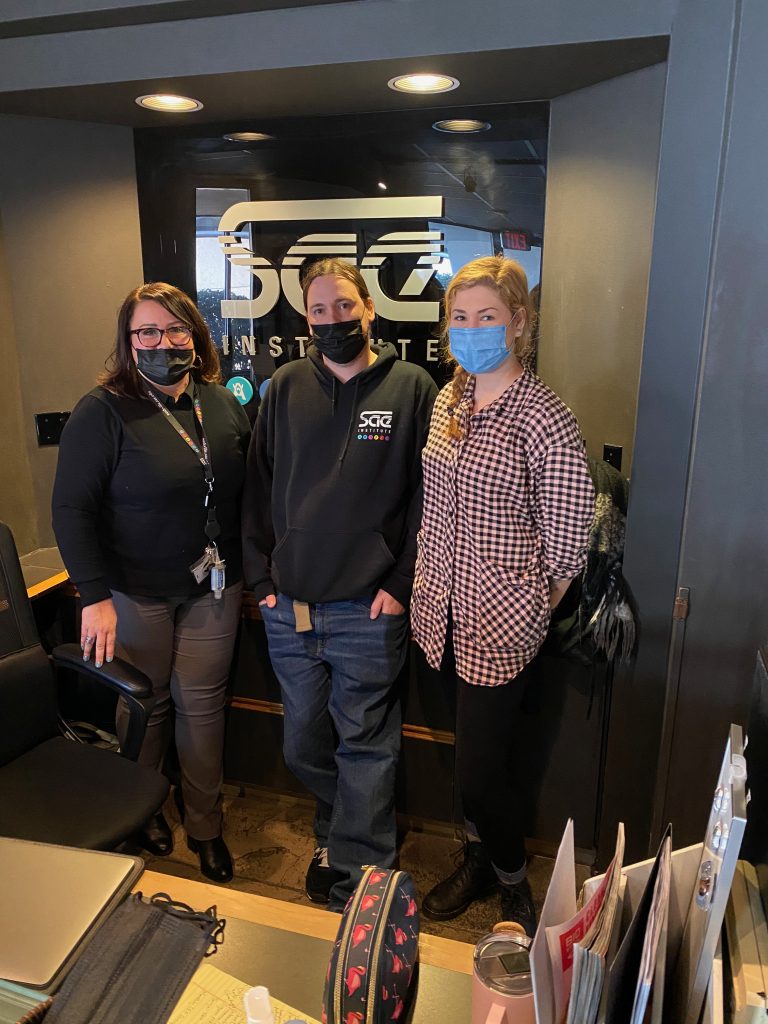
The building has two floors, with the ground floor mainly consisting of the studios. This includes three Audiovisual Suites (“AV Suites”), each with a small ISO booth as a recording room, Studio A with an SSL9000G console (which, according to Shannon, had belonged to Whitney Houston before they got it), Studio B with a Toft console and Studio C with it an icon controller and surround system for post production. There are also several large tracking rooms that can be used simultaneously and a room with a small stage, in which the sound and light setup classes in live engineering are being taught.
The classrooms, a lounge area and offices are located on the first floor. As seen in the blog post about SAE New York, the workstations in almost all classrooms consist of an Apple computer, Apollo Twin interface and a small midi keyboard. Despite the well-equipped rooms, every new student gets an iPad, a hard drive with 1TB of storage space and a pair of Shure SRH44 headphones at the start of the course.
Around 220 audio students and 30 entertainment business students are enrolled on the Nashville campus. The Entertainment Business course was previously called Music Business. According to Ryan Griffin, Director of Education, the main focus still lies on the music industry, but the curriculum also covers other areas such as sports event industry.
Due to the recent closure of the Emeryville campus, SAE Nashville has been approved for hosting a course in digital film, but the actual start date is still uncertain. According to Shannon, there are currently three international students enrolled, one from Morocco, one from India and one from Russia. As in New York, the quota of women in the course is around 15 percent. SAE Institutes USA offer the opportunity to apply for partial scholarships to national as well as international students.
The lessons are based on a hybrid system, which means that around half of them take place online and the other half on campus. The classes consist of up to 27 students. Over 70 percent of graduates find a job in the music industry – many of them in the extensive live industry around Nashville. The SAE staff provides many valuable contacts for students who are looking for a position. In addition, most of the lecturers teaching the various classes are industry people and can report first-hand on the everyday life of a working professional.
Throughout the Audio Engineering Bachelor’s program, a great focus lies not only the creative side of the industry, but also on the integration of audio in interactive media. In fact, there is an emphasis on profound technical knowledge in the curriculum, because “Tech Heavy Jobs” such as coding in connection with artificial intelligence and audio engineers for video, film and multimedia companies are in great demand.
